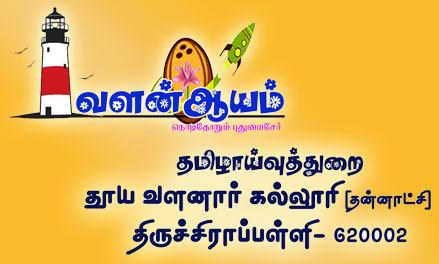



தலைப்பு தெளிவாகவும் விளக்கமாகவும் பொருண்மை விவாத அடிப்படையிலும் அமைதல் வேண்டும்.
தலைப்பு வெளிப்படையாக அமைதல் வேண்டும், சுருக்கக் குறியீடுகள் ஏனைய குறியீடுகள் போன்றவை பயன்படுத்தக்கூடாது.
ஒவ்வொரு கட்டுரையாளரும் தமது பெயர், முதலெழுத்து (Initial) தகுதிகள், முழுமையான முகவரி, தாம் சார்ந்துள்ள நிறுவனம் குறித்த தகவல்களைக் குறிப்பிட வேண்டும்.
ஆய்வுச் சுருக்கம் 250 சொற்களுக்கு மிகாமல் இருத்தல் வேண்டும். ஒரே பத்தியாக (Paragraph) இருத்தல் நலம். ஆய்வுச் சுருக்கம் கட்டுரையாளரின் தலைப்பிற்குள் அவரது சொந்தக் கருத்துக்களைத் தாங்கியதாக இருத்தல் வேண்டும். மேற்கோள்கள் இங்கு கட்டாயம் இடம் பெறக்கூடாது.
கட்டுரையின் சிக்கல்களை முன்வைத்து தெளிவாக அமைத்தல் வேண்டும். தலைப்பின் பின்னணி, ஆய்வுக் கருதுகோள் ஆகியவற்றைத் தெளிவாக வலியுறுத்தல் வேண்டும். கட்டுரையின் உட்கருத்தை விவரிப்பதாகவும் தெளிவாகவும் முன்னுரை அமைய வேண்டும்.
கட்டுரையில் பின்பற்றப்படும் ஆய்வு நெறிமுறைகளை கட்டாயம் விவரிக்க வேண்டும்.நெறிமுறைகள் எவ்வாறு கையாளப்பட்டுள்ளன என்பது குறித்த விபரங்களும் இடம் பெற வேண்டும்.
தேர்ந்து கொண்ட கருதுகோளினைப் பயன்படுத்தி, நிறுவி ஆய்வு முடிவுகளை எடுத்துரைக்க வேண்டும். சுருக்கமாகவும், தெளிவாகவும் முடிவுரை அமைய வேண்டும்.
The aim of this Journal is to bring out research based on new thinking, new idealism and Innovative Research Ideas in the field of Tamil Studies.
Structure of research paper
Author's Name, Qualifications, Email ID, Contact Number Communication Address.
The topic should be clear, descriptive and logically based on discussion. Title 14 (Font size) should be in bold font. The title should be clear and no abbreviations or symbols should be used.
Each writer should mention his/her name, first Name, qualifications, complete address and information about the institution to which he/she belongs. A full article should be submitted based on the information contained in the abstract. The author is solely responsible for that.
Abstract should not exceed 250 words. It is good to have a single paragraph. The abstract should contain the author's own views within the title. Quotations are not necessarily included here. Introduction – should clearly set out the issues of the essay. Background of the topic, research hypothesis should be clearly emphasized. The introduction should clearly describe the content of the article.
The study followed must be described in the article. Details of Research Methods have been handled should also be included.
Using the selected hypothesis, establish and present the results of the study. Conclusion should be concise and clear
Footnote, Relevant Images, Maps, Tables, Statistics etc...
The appropriate explanations for the references used in the research paper and the explanations for the quotations used, the corresponding authors, the names of the books, etc. should be mentioned very correctly.
References to dictionaries, journals, art archives used should clearly mention edition, year etc.
Addresses of websites, databases, web pages used should be mentioned correctly.
Article should be not less than 8 pages and not more than 10 pages. Minimum 1500 words and maximum 3000 words. (If more pages are fine considering the need of the study) should be typed in TAMIL UNICODE – ( in TAMIL Latha font only & in ENGLISH Times New Roman 12 points )
Format the article without proof reading. As far as possible, the essay should be able to express one's own conclusions on ideas that have not been thought of by others. The article should be uploaded by the specified date.
Articles will be accepted only after the recommendation of the Editorial Board. Late submissions will not be accepted
Plagiarism is a criminal offense involving activities that are not conducive to research. You are responsible for the opinions you express in the article.
For More Details:
Editor in Chief : Dr G.Beschi - 9487852571
Technical In charge : Dr R.Murali Krishnan - 9786066898